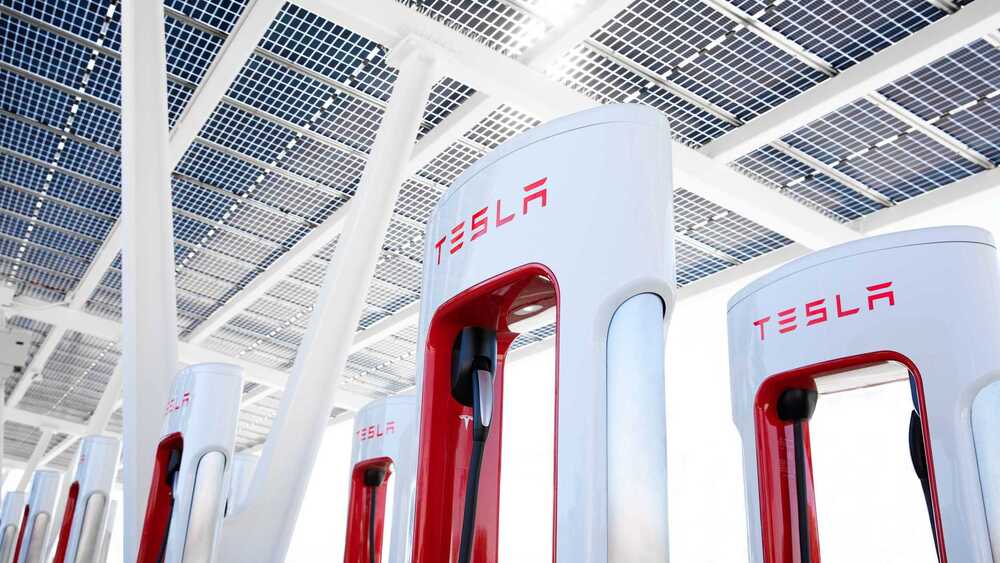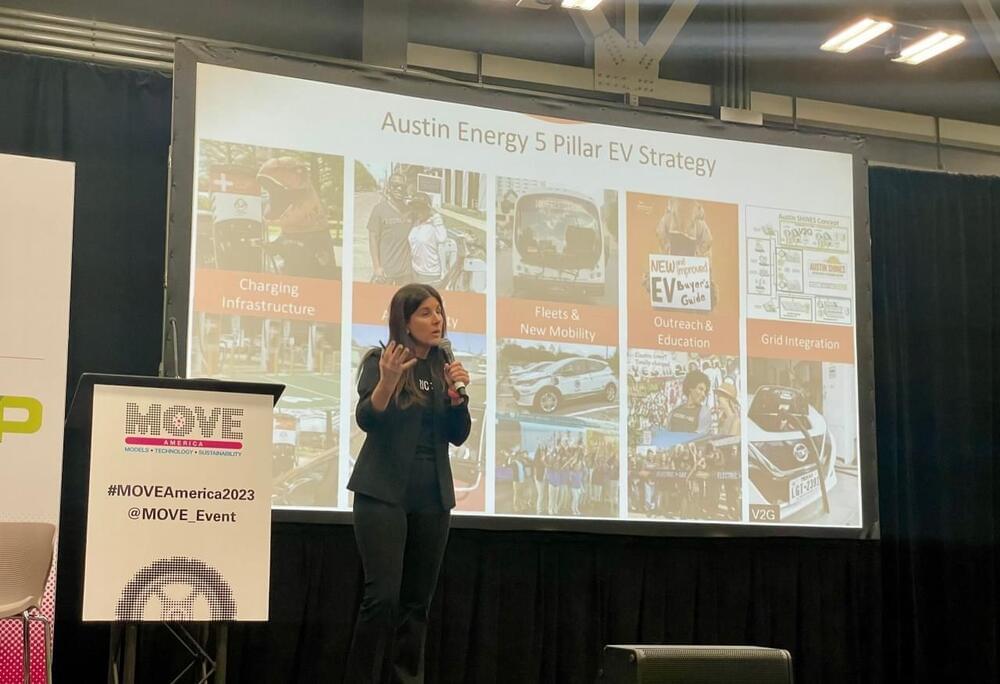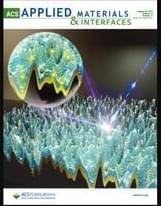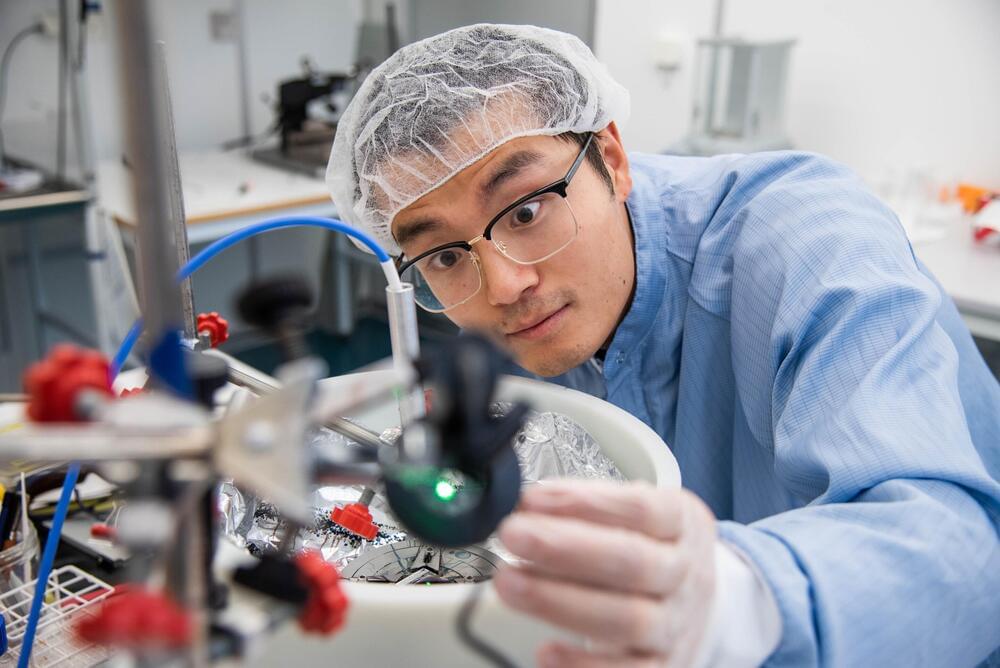There’s still a lot of mystery surrounding the Apple Car but we know a few things about it, including the fact it won’t be cheap.



New Zealand is the latest market where Tesla launched its Non-Tesla Supercharger Pilot program, which allows for the recharging of other electric vehicles at Superchargers.
According to the company, six Supercharging sites are now available for all EVs (compatible with the locally used CCS2 charging connector, natively used also by Tesla). That’s about a third of all Supercharging stations in New Zealand.
Australia was included in the program in early 2023, and currently, it seems that more than half (roughly 30 locations) were opened to all EVs.

AUSTIN (KXAN) — As the City of Austin works toward reducing its carbon footprint, city officials are working to expand programs and infrastructure to help make electric vehicle technology more accessible citywide.
Amy Atchley, senior lead with Austin Energy’s EV equity program, spoke Tuesday at MOVE America 2023, a mobility conference held in downtown Austin. Atchley’s presentation centered around providing EV access to underserved community members, particularly as the city moves toward a 2040 goal of net zero carbon emissions.
With that goal in mind, she noted transportation is the leading emitter of carbon dioxide into the atmosphere. In order to achieve that benchmark, she said the city must have at least 40% of its vehicle miles traveled done via electric vehicle technology by 2030.

Tesla’s vehicles come with various unique features, including the ability to use the mobile app to perform several different functions remotely. In a repost of another account pointing to the ability to set cabin temperature remotely, Tesla highlighted that preconditioning will also warm up the vehicle’s battery, helping to optimize range and overall performance.
On Wednesday morning, Tesla reposted a @WholeMarsBlog post on X describing the ability to pre-set cabin temperature remotely using the mobile app when it’s hot outside, meaning owners will “never get into a car that’s too hot or too cold again.”
Tesla piggybacked on the concept, pointing out that when users remotely precondition their cars during the winter, their batteries will also be warmed to the ideal temperature to improve vehicle performance.

Advances in the versatile design and synthesis of nanomaterials have imparted diverse functionalities to Janus micromotors as autonomous vehicles. However, a significant challenge remains in maneuvering Janus micromotors by following desired trajectories for on-demand motility and intelligent control due to the inherent rotational Brownian motion. Here, we present the enhanced and robust directional propulsion of light-activated Fe3O4@TiO2/Pt Janus micromotors by magnetic spinning and the Magnus effect. Once exposed to a low-intensity rotating magnetic field, the micromotors become physically actuated, and their rotational Brownian diffusion is quenched by the magnetic rotation. Photocatalytic propulsion can be triggered by unidirectional irradiation based on a self-electrophoretic mechanism.

Tesla has broken ground on the site of its planned futuristic diner with a drive-in theater and Supercharger station.
Yes, it sounds like that crazy project is actually happening.
This project has been in the works for a long time. In 2018, Elon Musk said that Tesla planned to open an “old school drive-in, roller skates & rock restaurant at one of the new Tesla Supercharger locations in Los Angeles.” It was yet another “Is he joking?” kind of Elon Musk idea, but he wasn’t kidding.

Most of today’s EVs use lithium-ion batteries, the same kind you’ll find in your smartphone or laptop. These batteries all have two electrodes (one positive and one negative), and the negative one is usually made of graphite.
While the battery is being charged, the lithium ions flow from the side of the battery with the positive electrode to the side with the negative electrode. If the charging happens too fast, the flow can be disrupted, causing the battery to short circuit.
StoreDot’s EV battery replaces the graphite electrode with one made from nanoparticles based on the chemical element germanium — this allows the ions to flow more smoothly and quickly, enabling a faster charge.

And potentially very embarrassing for all of crypto.
The trial of Sam Bankman-Fried is likely to be more consequential than just whether the man himself is found guilty. Depending on what evidence is introduced during the trial, it could be rough for the entire crypto industry.
“How much damage can this trial do to the already beaten-down reputation of the industry at this point?” asks Yesha Yadav, a law professor at Vanderbilt University. “This trial is going to be an excruciating moment for the industry because no one knows what kind of evidence might come out.”
“Is he going to throw the entire industry under the bus?”
Bankman-Fried’s behavior after the fall of FTX suggests he’s something of a wild card. He may suggest he was acting on the advice of his lawyers. But he may also introduce other evidence that could be troublesome — implying, for instance, that he was engaged in standard industry behavior or that everything that happened was Binance’s fault. That may be risky, but we already know that Bankman-Fried loves risk.
“Is he going to throw the entire industry under the bus?” Wong asks. “An idea like, ‘Everyone was doing this, it’s not fair I’m the only one who was charged?’” That may not fly in a court of law, but it could absolutely damage public perception of crypto at large.

Material used in organic solar cells can also be used as light sensors in electronics. This has been shown by researchers at Linköping University, Sweden, who have developed a type of sensor able to detect circularly polarized red light. Their study, published in Nature Photonics, paves the way for more reliable self-driving vehicles and other uses where night vision is important.
Some beetles with shiny wings, firefly larvae and colorful mantis shrimps reflect a particular kind of light known as circularly polarized light. This is due to microscopic structures in their shell that reflect the electromagnetic light waves in a particular way.
Circularly polarized light also has many technical uses, such as satellite communication, bioimaging and other sensing technologies. This is because circularly polarizing light carries a vast amount of information, due to the fact that the electromagnetic field around the light beam spirals either to the right or to the left.

The first Tesla Supercharger station with a “Magic Dock” to allow non-Tesla electric cars to charge has been spotted in the US.
After opening its Supercharger network in Europe last year and indicating that it would do the same in North America by the end of the year, we were a bit disappointed when it didn’t happen.
However, we know that it is still imminent. It could really happen any day, or it might have already happened by way of a “soft launch.”